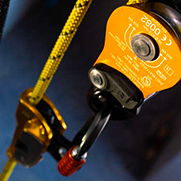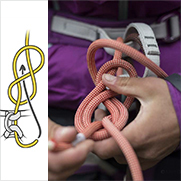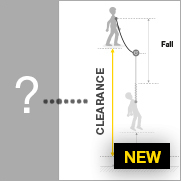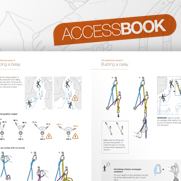Choice of carabiner for connecting a ZILLON or GRILLON lanyard to the harnesss
Warnings
- Carefully read the Instructions for Use used in this technical advice before consulting the advice itself. You must have already read and understood the information in the Instructions for Use to be able to understand this supplementary information.
- Mastering these techniques requires specific training. Work with a professional to confirm your ability to perform these techniques safely and independently before attempting them unsupervised.
- We provide examples of techniques related to your activity. There may be others that we do not describe here.
Key issues and risks
When the lanyard is tensioned and released, there can be poor positioning and rubbing between the carabiner and the harness attachment point, and rubbing or pressure against the locking sleeve by equipment or by the user's body.
The most important risks to consider
Recommendation on carabiner and accessories
Semi-permanent connection
Whenever possible, use a semi-permanent connector that locks with a tool.
Circular, equal strength in all axes (except cantilever loading).
Can be opened with a generic tool (point), no specific wrench needed
Frequent attachment
If your equipment must be frequently attached, use an Am’D TRIACT-LOCK or Am’D BALL-LOCK with a CAPTIV positioning system.
Why this choice?
If the user can keep the lanyard permanently attached to the harness, a semi-permanent connector is an ideal solution.
If the user wants the ability to detach the lanyard from the harness, the CAPTIV bar helps prevent most poor positioning of the Am'D.
Precautions for use
The remaining risk of the locking sleeve rubbing against the harness attachment point, equipment, or external items, must be monitored by the user.









